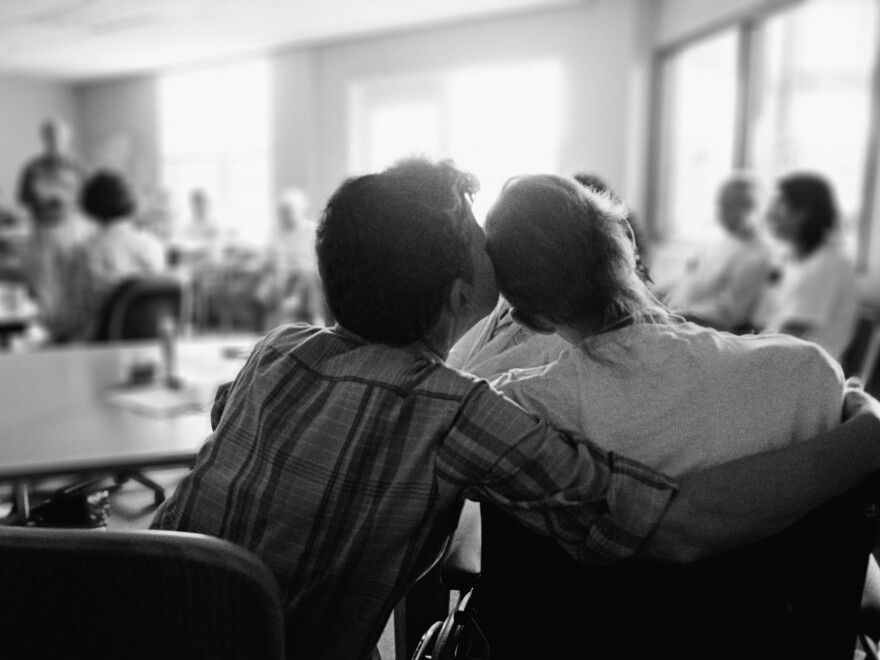We all hope for a little peace at the end of life, for ourselves and for our loved ones. Hospice services can play a big role, relieving pain and providing spiritual and emotional support. But a federal report published Tuesdaysynthesized patient and Medicare payment data going back to 2005 and found that, as the hospice industry expands, some hospice providers are bilking Medicare and neglecting patients.
The report calls for the Centers for Medicare and Medicaid Services, which is a key player in the funding of hospice services, to increase its level of scrutiny to improve the detection of these problems.
Hospice services are an increasingly popular Medicare benefit. In 2016, Medicare paid hospice providers $16.7 billion. A decade earlier, it was $9.2 billion. And, unlike many other health care providers, hospices aren't paid per service rendered. They're paid per patient, per day, "regardless of the number of services they provide and regardless of the quality of care they provide," says Nancy Harrison, a deputy regional inspector general in the U.S. Department of Health and Human Services and the lead author of the report.
While patients can generally count on hospice to relieve their suffering, the report shows that sometimes patient needs have been ignored.
"We found that hospices provide fewer services on the weekends than during the week," Harrison says. "Far fewer, actually. And patients would have pain on weekends just as well as they have it on weekdays."
There were other forms of neglect noted in the report. For example, one hospice billed Medicare for more than two weeks of high-level care without ever visiting the patient. They'd just call his family and ask how he was doing.
The federal reviewers also discovered that some hospice providers would seek out patients who live in nursing homes or assisted living. Those settings allowed them to bill Medicare for a level of service that some patients didn't need, but that cost the government almost 4 times as much as basic, in-home care.
As a result, in 2012 alone, Medicare paid $268 million for expensive, inpatient hospice care for patients who didn't need it.
The report also highlights how some hospice companies make money by outright fraud. Derrick Jackson, a longtime special agent with HHS, recalls a 2014 case where a Mississippi hospice owner signed up clients who were not terminally ill and therefore didn't qualify for hospice. The owner was sentenced to nearly six years in prison and had to pay back almost $8 million.
Jackson says the patients in this case didn't even know they had enrolled in hospice. "Often these hospice owners will market themselves as 'we will clean your house for free' — in other words, a housecleaning service. Other times, he says, the new clients were elderly, isolated people who just wanted "someone to come over and sit down and talk with them."
The consequences of enrolling in hospice when you don't need it are serious, says Harrison.
"When a patient does elect hospice care, they are waiving their right for Medicare payment for curative treatment," she says. "So, in effect, they're giving up curative care. And if they don't know they're doing that, they could be making not the best choice for their future."
The inspector general's report has 15 recommendations for improving the system. Basically, the report says that the Centers for Medicare and Medicaid Services, or CMS, should analyze more data to ferret out scams and then share that information with hospice inspectors and the public
CMS didn't provide anyone for an interview for this story. The office did release a written statement that says: "Ensuring patient safety and access to quality care at hospice and all certified care facilities is paramount to CMS' work. The agency takes the oversight role of the Medicare hospice program seriously and is aggressively focused on reducing and eliminating fraud, waste and abuse."
However, in a letter to Daniel Levinson, the inspector general at HHS, CMS Administrator Seema Verma, rejected more than half of the report's recommendations.
Harrison, lead author of the critical report, believes it crucial that the government get this right "because hospice is eventually going to touch us all."
Copyright 2018 NPR. To see more, visit https://www.npr.org/.


